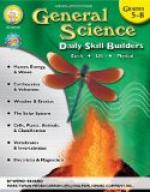206. Why Soap Cleans. The natural oil of the skin catches and retains dust and dirt, and makes a greasy film over the body. This cannot be removed by water alone, but if soap is used and a generous lather is applied to the skin, the dirt is “cut” and passes from the body into the water. Soap affects a grease film and water very much as the white of an egg affects oil and water. These two liquids alone do not mix, the oil remaining separate on the surface of the water; but if a small quantity of white of egg is added, an emulsion is formed, the oil separating into minute droplets which spread through the water. In the same way, soap acts on a grease film, separating it into minute droplets which leave the skin and spread through the water, carrying with them the dust and dirt particles. The warmer the water, the better will be the emulsion, and hence the more effective the removal of dirt and grease. This explanation holds true for the removal of grease from any surface, whether of the body, clothing, furniture, or dishes.
207. Washing Powders. Sometimes soap refuses to form a lather and instead cakes and floats as a scum on the top of the water; this is not the fault of the soap but of the water. As water seeps through the soil or flows over the land, it absorbs and retains various soil constituents which modify its character and, in some cases, render it almost useless for household purposes. Most of us are familiar with the rain barrel of the country house, and know that the housewife prefers rain water for laundry and general work. Rain water, coming as it does from the clouds, is free from the chemicals gathered by ground water, and is hence practically pure. While foreign substances do not necessarily injure water for drinking purposes (Section 69), they are often of such a nature as to prevent soap from forming an emulsion, and hence from doing its work. Under such circumstances the water is said to be hard, and soap used with it is wasted. Even if water is only moderately hard, much soap is lost. The substances which make water hard are calcium and magnesium salts. When soap is put into water containing one or both of these, it combines with the salts to form sticky insoluble scum. It is therefore not free to form an emulsion and to remove grease. As a cleansing agent it is valueless. The average city supply contains so little hardness that it is satisfactory for toilet purposes; but in the laundry, where there is need for the full effect of the soap, and where the slightest loss would aggregate a great deal in the course of time, something must be done to counteract the hardness. The addition of soda, or sodium carbonate to the water will usually produce the desired effect. Washing soda combines with calcium and magnesium and prevents them from uniting with soap. The soap is thus free to form an emulsion, just as in ordinary water. Washing powders are sometimes used instead of washing soda. Most washing powders contain, in addition to a softening




